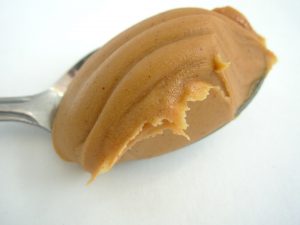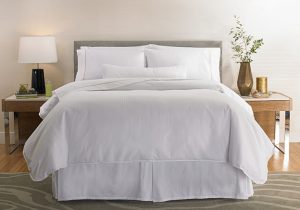
The Busy Trap: Why Sleep Shouldn’t Be Sacrificed
Our culture glorifies busyness. People wear their hectic schedules like badges of honor, boasting about how little sleep they get. But what’s the real cost of this constant busyness? Many people cut corners on sleep, prioritizing other activities. However, skimping on sleep backfires when it comes to productivity.
Why Prioritize Sleep?
Sleep is crucial for both brain function and emotional well-being. It facilitates learning and memory, strengthens focus, and enhances decision-making skills. Chronic sleep deprivation weakens your judgment and has been linked to depression, risk-taking behavior, and even suicide. In children, sleep deprivation manifests as difficulty socializing, sadness, and lack of motivation.
Beyond mental health, sleep is vital for overall physical health and vitality. It allows the body to heal and repair itself, including the heart and blood vessels. Chronically skimping on sleep increases the risk of developing serious health problems, such as:
- Obesity
- Heart disease
- Kidney disease
- High blood pressure
- Diabetes
- Stroke
Sleep Deprivation: As Dangerous as Drunk Driving?
 The dangers of sleep deprivation are comparable to those of driving under the influence. According to the CDC, alcohol-related accidents caused approximately 10,000 deaths in 2013. The National Highway Traffic Safety Administration reports that drowsy driving is a factor in nearly 100,000 crashes each year.
The dangers of sleep deprivation are comparable to those of driving under the influence. According to the CDC, alcohol-related accidents caused approximately 10,000 deaths in 2013. The National Highway Traffic Safety Administration reports that drowsy driving is a factor in nearly 100,000 crashes each year.
How Much Sleep Do You Really Need?
Some people claim to function perfectly on just 4-5 hours of sleep, but this is likely an exaggeration or a personal definition of “function” that differs from the norm. Most adults report feeling best on 6-8 hours of sleep, with some outliers needing 8-10 hours.
exaggeration or a personal definition of “function” that differs from the norm. Most adults report feeling best on 6-8 hours of sleep, with some outliers needing 8-10 hours.
The National Sleep Foundation offers a helpful self-assessment tool to determine your ideal sleep duration:
- Do you feel productive, healthy, and happy on seven hours of sleep?
- Do you require nine hours for optimal functioning?
- Are you overweight or at risk for certain diseases?
- Do you experience sleep problems or rely on caffeine to get through the day?
- Do you ever feel drowsy while driving?
The NSF also provides updated sleep recommendations by age group:
- Newborns (0-3 months): 14-17 hours (previously 12-18)
- Infants (4-11 months): 12-15 hours (previously 14-15)
- Toddlers (1-2 years): 11-14 hours (previously 12-14)
- Preschoolers (3-5 years): 10-13 hours (previously 11-13)
- School-age children (6-13 years): 9-11 hours (previously 10-11)
- Teenagers (14-17 years): 8-10 hours (previously 8.5-9.5)
- Younger adults (18-25 years): 7-9 hours (new category)
- Adults (26-64 years): 7-9 hours (unchanged)
- Older adults (65+ years): 7-8 hours (new category)
Creating Optimal Sleep Conditions
There’s a growing body of research on how to create an environment that promotes sleep quality. The National Sleep Foundation emphasizes that a good night’s sleep involves engaging all your senses:

Taste
- Be mindful of what you consume before bed. Opt for light, healthy snacks like whole-wheat crackers, peanut butter, or cereal with milk. These foods promote tryptophan production, a precursor to sleep-inducing melatonin.
- Avoid heavy, spicy, or fried foods that can upset your stomach. Steer clear of alcohol, which may disrupt deep sleep.
- Eliminate caffeine intake several hours before bedtime.
Smell

Essential oils sprayed on pillows can help achieve a restful sleep
Allergies and congestion can disrupt sleep. Address allergies by washing sheets weekly, laundering blankets regularly, and using dust mite covers for mattresses and pillows. Consider using an air purifier. To promote relaxation, add a few drops of lavender or vanilla essential oil to your pillow or sheets.
Launder your sheets with a scent you enjoy or add a few drops of Lavender or Vanilla to your pillow and sheets.
Here are 13 other scents for sleep:
Valerian Extract; Sandalwood; Juniper; Lemon; Bergamot; Frankincense; Ravensara; Marjoram; Roman Chamomile; Geranium; Rose; Ylang Ylang; Jasmine. Click here for more information.
Hearing
Eliminate distractions! Remove televisions from the bedroom. Even if you fall asleep with the TV on, the inconsistent sounds can disrupt sleep cycles and make it difficult to fall

No television!!!
Sight
Transform your bedroom into a haven of calm by keeping it clutter-free. Clutter can trigger feelings of anxiety and restlessness, making it harder to unwind.
For Sleep, Darkness is Golden
Ensure your bedroom is dark by using blackout curtains or blinds. Light disrupts the production of melatonin, the hormone that regulates your sleep-wake cycle. When melatonin levels are high, you sleep soundly; when they’re low, you wake up.
Banish Electronics from the Bedroom
Electronics are the enemy of a good night’s sleep! Remove televisions, radios, tablets, and computers from your bedroom. The temptation to check them before bed is high, and their blue light emission further suppresses melatonin production, keeping your brain alert instead of winding down.
Touch

Best temperature between 60 and 68 degs.
For optimal sleep, aim for a bedroom temperature between 60 and 68 degrees Fahrenheit. Your body temperature naturally dips as you become drowsy, reaching its lowest point around 5 am before rising slightly again in the morning. If the room is too warm, it can disrupt this natural temperature decline and lead to restlessness throughout the night.
Make Your Bed!
There’s truth to your mother’s nagging about making your bed. Taking pride in your sleep environment can contribute to a better night’s sleep.
Mattress and Pillow Upgrades
Mattresses typically last around 10 years, and pillows need replacing every two years. However, the best way to determine if it’s time for new ones is how you feel in the morning. Do you wake up refreshed or stiff and achy? Are there lumps, bumps, or sagging areas in your mattress? The same goes for your pillow – does it properly support your head and neck? If you decide it’s time for replacements, take your time trying them out.
Spend at least 20 minutes on any mattress you’re considering. If you’ve ever experienced a particularly wonderful night’s sleep in a hotel bed, ask the staff about the mattress brand. I was so impressed by the Heavenly Bed at the Westin Hotel that I vowed to get for one myself!

The Heavenly Bed is indeed heavenly!

